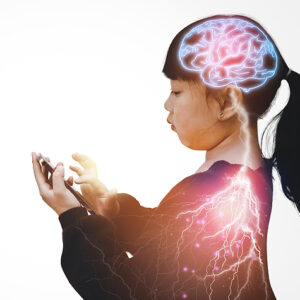Remember struggling through algebra in high school? Imagine a personalized tutor that adjusts the math problems based on your understanding, identifies gaps and provides support to solve the equations. This is just one example of how artificial intelligence is poised to revolutionize education.
There is no denying that AI is changing the way we live and work. It is disrupting many industries and is reshaping economies and societies at an unprecedented pace. AI’s potential promises increased efficiency, productivity, innovation and profits. Yet, amid this wave of change, education leaders (including many teachers and administrators) remain hesitant to embrace the opportunities AI presents. In many classrooms, AI is viewed with skepticism.
Many teachers are expressing worry about ways the use of AI can facilitate cheating or plagiarism. Some have even banned using AI in the classroom or AI detectors for work. However, this apprehension overlooks the immense benefits AI can offer. It could also deny students the opportunity to learn more about AI tools that they will be using later in their lives.
AI, at its core, represents a powerful tool with the potential to enhance learning experiences, expand educational horizons and prepare students for the demands of a rapidly evolving workforce. Rather than viewing AI as a threat to academic integrity, school leaders should recognize its potential to empower students. By leveraging AI tools responsibly, students can access a wealth of information, insights and resources, enriching the learning process like never before.
The availability of AI for students is as common as a calculator, and the use of both should be looked at similarly. Organizations like the International Baccalaureate should be applauded for adopting and supporting AI to boost opportunities for students and educators.
AI-powered analytics can provide invaluable insights for educators into student progress, enabling teachers to identify areas of strength and weakness with greater precision. Armed with this data, educators can tailor their lesson plans to meet the needs of their students, whether it’s providing additional support for struggling students or offering advanced challenges for those who excel.
Teachers can create personalized learning plans for each student, utilizing AI tools catering to different learning styles and addressing specific needs. This data-driven approach fosters a more inclusive learning environment where every student has the opportunity to reach their full potential.
AI is also helpful in fostering creativity and critical thinking. Educators shouldn’t fear AI as a replacement for traditional learning methods. Instead, they should encourage students to leverage its capabilities as a powerful complement to their ideas and abilities. By engaging with AI tools for research and analysis of information, students can learn to better hone their analytical skills, refine their ideas and cultivate a deeper understanding of the concepts they are studying.
Learning information (facts, dates, statistics) is essential, but understanding what this information means and why it is important is much more valuable. AI can make it easier for students to consider critically the information it provides. It can help answer those questions that inevitably arise when students express that familiar frustration — “When am I ever going to use this information in my life?!”
AI can also help students analyze opposing viewpoints and formulate well-supported arguments. This fosters a more-profound learning experience that goes beyond memorizing facts or dates and encourages students to develop their critical thinking skills. Students will not only develop their opinions on issues — but understand why they feel the way they do.
Embracing AI in education extends beyond simply keeping pace with technological trends. It’s about equipping students with the skills and competencies they need to thrive in a rapidly changing world. As AI becomes increasingly integrated into various industries and professions, fluency in navigating AI environments and leveraging its potential for innovation and problem-solving becomes table stakes in the evolution of education.
We need to prepare students for the tomorrow’s careers. By encouraging collaboration with AI systems to enhance productivity and creativity, students are not just prepared for the realities of the modern workforce but also develop the needed skills of adaptability for lifelong learning.
AI empowers students and educators alike, fostering creativity, personalization, and the development of essential skills for the 21st century. Let us move forward, harnessing the power of AI to shape a brighter future for education and the generations who will inherit it.


